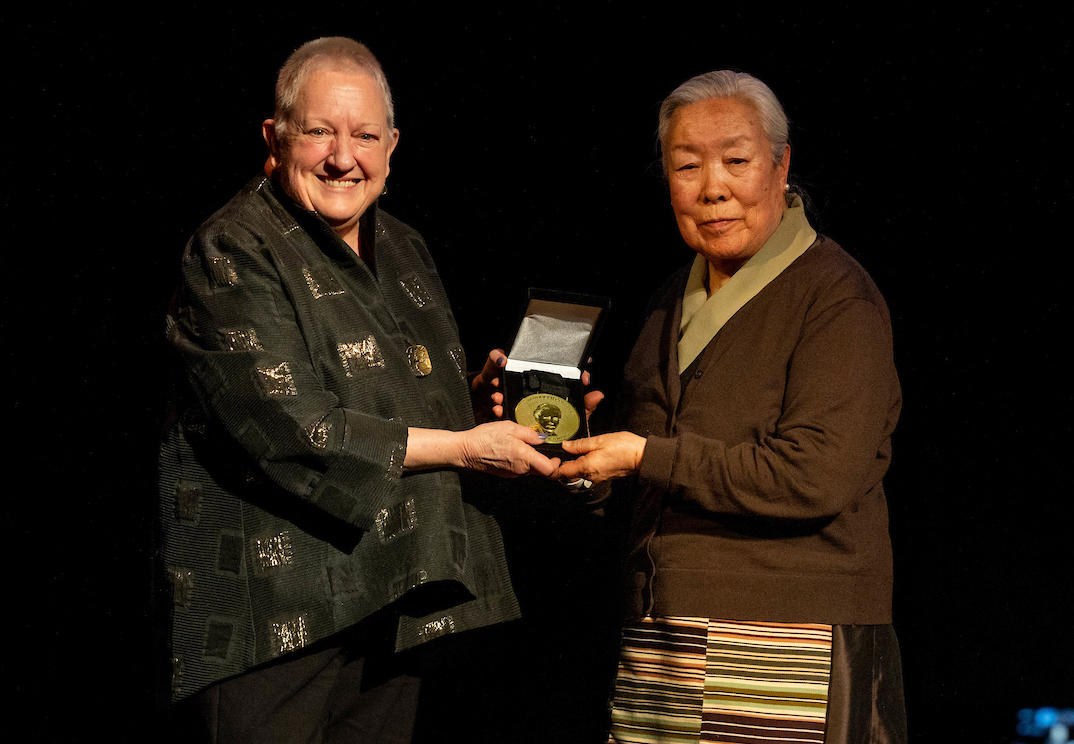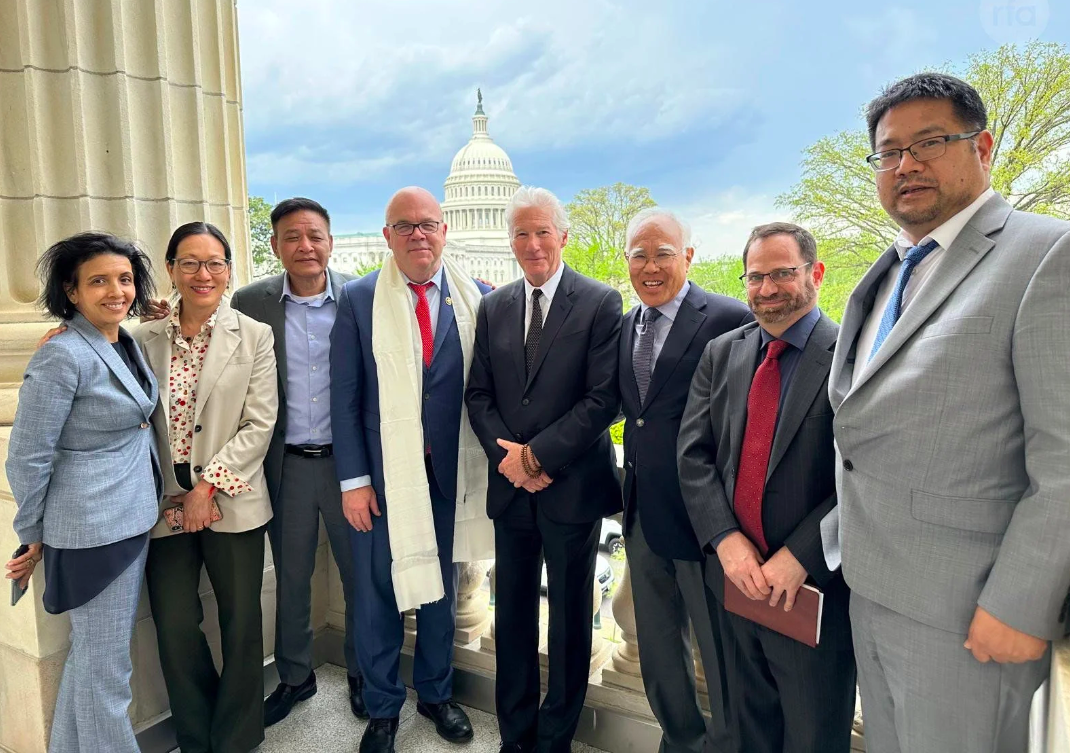Pages 298
Black Neck Books
Reviewed by Nyinjey
I would like to thank publisher and poet Bhuchung D Sonam for sending me the novel Another Place. In an age of the internet and digital technology made worse by the pandemic lockdown, what a joy it is to receive books through the postal service from India! Topden Tsering already wrote a brilliant review of the novel, so lest I repeat his narratives, I will try to focus on the aspects of the novel that he left untouched in his review. First of all, this is potentially an excellent novel for Tibetan urbane intellectuals alienated from the mainstream Tibetan world for two reasons: 1) it’s a novel written in English 2) the “lead” character is an Anglophone Tibetan educated in a convent school in Kalimpong.
The lead character is a “savvy” young man called Frank Lee aka Ngawang Tsultrim, who comes to Dharamsala to serve the Tibetan government in exile. As someone with a decent English education, he gets posted in the Department of Information and International Relations; this is the department where supposedly the “best and brightest” young civil servants aspire to serve. It has an office building designed not unlike the capitol hill of Washington, and hence officials serving in this department have ample opportunities to travel abroad to campaign for and attend meetings on the Tibetan struggle. Frank Lee’s job is to work as a coordinator with foreign Tibet Support Groups and other Non-Governmental Organizations such as the International Campaign for Tibet. Like most young diplomats and journalists working in the department, Frank Lee aspires and succeeds in getting a Fulbright [half-bright] scholarship in the United States. Like most Fulbright Tibetan scholars in the West, Frank Lee pursues a one-year diploma degree course. This basically means he doesn’t have to write papers!
The main plot of the novel is Frank Lee’s losing his expensive computer notebook he bought from the US [the only one that’s available in the whole of India then] and how he and his friend, Tony (an Englishman who’s in Dharamsala to write a thesis on Tibetan democracy), using investigative insights from Sherlock Holmes’, makes sure they recover the expensive product in a such a way that the man who “stole” it, a friend, doesn’t lose his face! To me, this is a metaphor for Tibetans using their creative genius to regain their lost homeland from China in such a way that genuine reconciliation between the two neighboring nations is once again restored. But such a reconciliation – a true restoration of Tibetan and Chinese freedom – is being undermined by many factors that the Tibetan population, including the Dharamsala establishment, has to overcome. These are the massive dumbing down of Tibetan intelligence caused by cheap, sensationalist Bollywood films and TV soap operas, the tendency of Tibetans to spread rumors without really checking out the sources, the typical orthodoxy and lack of innovation and dictatorial nature of Dharamsala bureaucrats as depicted by the character playing the role of secretary of the Department of Information and International Relations; in short lack of democratic culture and consciousness.
Another plot is the missed love story between Frank Lee and the lead heroine of the novel Pema, a daughter of a pompous former Tibetan aristocrat named Jangsur. Pema too gets educated in a convent school, but thanks to her father she’s transferred to TCV where she is brought up in a Tibetan environment. Apart from this, her father arranges two tutors who provide Tibetan lessons to her daughter at his home. This rare opportunity to have access to the best of English and Tibetan educations plus economic wealth thanks to Jangsur running a bunch of taxi services is the reason why Pema grows up into a powerful, sophisticated, cosmopolitan (she is most comfortable speaking in English, Nepali or Hindi although she learns to speak Tibetan relatively well) and out and out Tibetan femi-nationalist. The way she knocks off her Afghan boyfriend in Delhi who tries to humiliate her is just breathtaking!
While Frank Lee is a savvy, interesting character who succeeds in recovering his precious computer notebook, while he has the courage to suggest in front of all the junior staffs during a meeting that the dictatorial secretary of the Department of Information and International Relations (behind his back staffs call him Idi Amin) to cut down on his foreign trips to save office expenditure, he lacks the “killer instinct” that Pema possesses.
This lack of ‘killer instinct’ causes his exile from Dharamsala to the US, for he’s easily bullied into submission by the unjust authority exerted by pompous government bureaucrats. Just before he leaves for the US, however, a proto-consciousness of sort begins to dawn on Frank Lee’s mind about the need to gain political power. He expresses for the first time his spontaneous, genuine outrage at CTA’s Middle Way video propagandas. While packing up his clothes into his suitcase to leave for the US to rejoin with his wife in Colorado, for the first time Frank Lee also looks at and packs up the political science texts from his school in the US, texts he never read!
Will Frank Lee read the political texts in the US and return to Dharamsala to help lead a democratic and Rang-tsen revolution? Or like the rest of half-brighters settled in the US and Canada, he will be lost in his own world trying to build a professional career? The novel ends without answering these questions.
PS: in the novel, we have no idea about Frank Lee’s parents, his regional background whether he’s from Central Tibet, Kham or Amdo. He’s simply Frank Lee.
(Views expressed are his own)
The writer worked in Gangkyi, Dharamsala in various capacities, as staff at Department of Info & International Relations, Library of Tibetan Works & Archives, Kashag, Tibetan Centre for Human Rights and Democracy. Presently he lives and works in Toronto, Canada.











3 Responses
Wonderful review
It is well known that half-brights are sent to steal intellectual property and local know-how. Full-brights put a stop to it. There is nothing new here, has been occurring since the times of Alexandra David-Neel. Half-brights are usually easier to spot given the color of hair and general sense of whiny helplessness. So nothing unusual about the Tibetans who gravitate towards Half-brights to better their own conditions.
I genuinely want to appreciate the effort to write a novel relatable to us. And im very interested to read it. keep it up.good luck